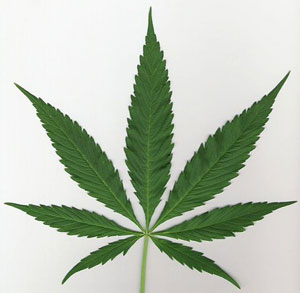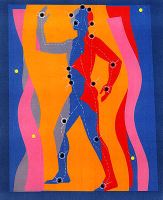 Prior studies suggest that cherry products have urate-lowering effects and anti-inflammatory properties, with the potential to reduce gout pain.
Prior studies suggest that cherry products have urate-lowering effects and anti-inflammatory properties, with the potential to reduce gout pain.
Researchers at Boston University School of Medicine, in Massachusetts studied the relationship between cherry intake and the risk of recurrent gout attacks among people with gout. Continue reading Eating cherries to lower the risk of gout attacks →
 Trampoline jumping is a beneficial and constructive physical exercise for children, but it has a significant risk for injuries.
Trampoline jumping is a beneficial and constructive physical exercise for children, but it has a significant risk for injuries.
Now, after reviewing the evidence, the American Academy of Pediatrics is discouraging recreational use of trampolines in the home. Continue reading Risk of injury to children who use trampolines →
 Fewer adolescents believe that regular cannabis use is harmful to health. Along with this, adolescents are starting to smoke weed at younger ages, and more adolescents are using cannabis daily.
Fewer adolescents believe that regular cannabis use is harmful to health. Along with this, adolescents are starting to smoke weed at younger ages, and more adolescents are using cannabis daily.
Researchers at Duke University, in Durham, North Carolina, tested the association between persistent cannabis use and neuropsychological decline to determine whether it’s concentrated among cannabis users who start smoking during their adolescent years. Continue reading Persistent cannabis users show neuropsychological decline →
 Approximately 30% of people over 65 years of age living in the community fall each year.
Approximately 30% of people over 65 years of age living in the community fall each year.
This Cochrane review updates what we know. Continue reading Reducing the rate and risk of falling →
 There’s lots of interest, but nobody ever reviewed the evidence before this.
There’s lots of interest, but nobody ever reviewed the evidence before this.
Researchers at the College of the Holy Cross, in Worcester, Massachusetts, accepted the challenge. Continue reading Review of art therapies in dementia care →
 Testicular cancer has increased steadily, but the cause(s) remains elusive.
Testicular cancer has increased steadily, but the cause(s) remains elusive.
Researchers at the University of Southern California, Los Angeles, evaluated the relation between testicular cancer and exposure to marijuana and other recreational drugs. Continue reading Marijuana increases the risk of testicular cancer →
 Although it’s widely used for chronic pain, there’s controversy as to its value.
Although it’s widely used for chronic pain, there’s controversy as to its value.
Now, researchers at Memorial Sloan-Kettering Cancer Center, in New York City, reviewed the evidence in 4 chronic pain conditions. Continue reading Acupuncture: Effective to treat chronic pain →
 The Centers for Disease Control and Prevention reports that the overall prevalence of hypertension among US adults between 2003 and 2010 was 30%, or about 67 million people. About 36 million (54%) had uncontrolled hypertension.
The Centers for Disease Control and Prevention reports that the overall prevalence of hypertension among US adults between 2003 and 2010 was 30%, or about 67 million people. About 36 million (54%) had uncontrolled hypertension.
Researchers at Wake Forest University School of Medicine, in Winston-Salem, North Carolina, examined the prevalence of CAM use among older adults with and without diagnosed high blood pressure and the degree to which CAM is used specifically for the treatment of high blood pressure. Continue reading CAM use among people with high blood pressure →
 Low vitamin D levels are associated with depressive symptoms, especially in people with a history of depression.
Low vitamin D levels are associated with depressive symptoms, especially in people with a history of depression.
Researchers at the University of Massachusetts, in Amherst, evaluated the impact of daily supplementation with vitamin D combined with elemental calcium on depression. Continue reading Testing the effect of vitamin D treatment on symptoms of depression →
 That’s right. Financial Times reports veggie only outlets will appear in Amritsar, home to the Golden Temple, the holiest site of India’s minority Sikh faith, and the small town of Katra, the base for Hindus visiting the mountain shrine of Vaishno Devi, the second busiest pilgrimage spot in India. Continue reading McDonald’s is setting up vegetarian outlets →
That’s right. Financial Times reports veggie only outlets will appear in Amritsar, home to the Golden Temple, the holiest site of India’s minority Sikh faith, and the small town of Katra, the base for Hindus visiting the mountain shrine of Vaishno Devi, the second busiest pilgrimage spot in India. Continue reading McDonald’s is setting up vegetarian outlets →
 Organic food is grown without using synthetic fertilizers, chemical pesticides and insecticides, growth hormones, or antibiotics. It cannot be irradiated, contain genetically engineered organisms or genetically modified organisms, and cannot be grown using sewage sludge fertilizer.
Organic food is grown without using synthetic fertilizers, chemical pesticides and insecticides, growth hormones, or antibiotics. It cannot be irradiated, contain genetically engineered organisms or genetically modified organisms, and cannot be grown using sewage sludge fertilizer.
Researchers at Stanford University, in California, reviewed the evidence that farming by these criteria is better than conventional methods. Continue reading Health effects of organic vs conventional foods →
Complementary and Alternative Medicine: Fair, Balanced, and to the Point
 Prior studies suggest that cherry products have urate-lowering effects and anti-inflammatory properties, with the potential to reduce gout pain.
Prior studies suggest that cherry products have urate-lowering effects and anti-inflammatory properties, with the potential to reduce gout pain.







